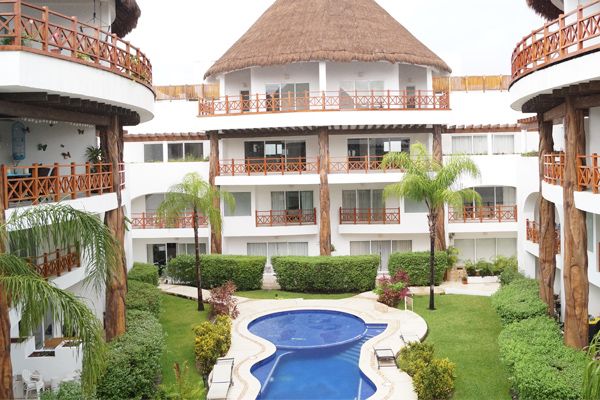Despite the allure of maintenance-free, amenity-rich living, condominium ownership is not for everyone. Before you join others who have chosen to live in this community arrangement, consider the following factors that come along with it.
Sharing is Required
As a condominium owner you share common walls with your neighbors. The number of walls you share depends on the architectural style of your condo complex and where your unit is located within that complex. You could share walls with neighbors who live on either side as well as above or beneath you. In addition, you share ownership and use of common areas and amenities. Examples of common areas include hallways and exterior walls. Available amenities vary with the complex and can include clubhouses, gyms, swimming pools, security guards, and more. These common walls and areas are reminiscent of apartment life. This may not be an issue for some, but if you are accustomed to living in a single-family home, living in proximity to others and sharing space may require adjustment.
Sharing is Required
As a condominium owner you share common walls with your neighbors. The number of walls you share depends on the architectural style of your condo complex and where your unit is located within that complex. You could share walls with neighbors who live on either side as well as above or beneath you. In addition, you share ownership and use of common areas and amenities. Examples of common areas include hallways and exterior walls. Available amenities vary with the complex and can include clubhouses, gyms, swimming pools, security guards, and more. These common walls and areas are reminiscent of apartment life. This may not be an issue for some, but if you are accustomed to living in a single-family home, living in proximity to others and sharing space may require adjustment.
Space is Fixed
Whatever square footage you have when you buy is what you will have until you move elsewhere. Unlike a single-family home where you can build a room or other addition as long as you have available land and appropriate permits, a condo stays as is. Remember what you own is the interior of your unit. You do not own the land beneath the building. And because you share walls, building an addition is restricted.
Appreciation is Variable
As with any home, value appreciation is influenced by the area where you live. In some locations, especially where land and home prices are at a premium, condominium values hold their own and even rise. Generally speaking though condominiums can be among the first properties to experience stagnant or declining appreciation if the economy takes a downturn. In a sagging economy and also in a buyers' market -- one in which there are more homes for sale than there are willing buyers -- home prices tend to rise more slowly and may fall. This makes single-family homes more immediately affordable, and those who typically would have purchased a condo may choose a single-family home instead.
Whatever square footage you have when you buy is what you will have until you move elsewhere. Unlike a single-family home where you can build a room or other addition as long as you have available land and appropriate permits, a condo stays as is. Remember what you own is the interior of your unit. You do not own the land beneath the building. And because you share walls, building an addition is restricted.
Appreciation is Variable
As with any home, value appreciation is influenced by the area where you live. In some locations, especially where land and home prices are at a premium, condominium values hold their own and even rise. Generally speaking though condominiums can be among the first properties to experience stagnant or declining appreciation if the economy takes a downturn. In a sagging economy and also in a buyers' market -- one in which there are more homes for sale than there are willing buyers -- home prices tend to rise more slowly and may fall. This makes single-family homes more immediately affordable, and those who typically would have purchased a condo may choose a single-family home instead.
The Association Rules
The condo association, which is comprised of the homeowners, is responsible for maintenance, operation, and finances of the complex. A well-run association can offer considerable convenience and benefits for owners. On the contrary, a poorly run association can create headaches, hassles, and hardships. You can expect to pay monthly association fees or dues that cover operating costs of the complex. Those fees can be steep depending on the amenities offered. You can also expect the association to make and enforce rules that are designed to maintain a harmonious look and feel of the complex. Some associations have lots of rules. Others have few rules. Some rules are reasonable, and still others can be intrusive. Rules govern everything from your number of parking spaces to restrictions on visitors. As an owner, you are required to abide by all of the rules whether you like them or not.
The condo association, which is comprised of the homeowners, is responsible for maintenance, operation, and finances of the complex. A well-run association can offer considerable convenience and benefits for owners. On the contrary, a poorly run association can create headaches, hassles, and hardships. You can expect to pay monthly association fees or dues that cover operating costs of the complex. Those fees can be steep depending on the amenities offered. You can also expect the association to make and enforce rules that are designed to maintain a harmonious look and feel of the complex. Some associations have lots of rules. Others have few rules. Some rules are reasonable, and still others can be intrusive. Rules govern everything from your number of parking spaces to restrictions on visitors. As an owner, you are required to abide by all of the rules whether you like them or not.
Before You Buy
A few general rules of thumb when considering a condo purchase are:
A few general rules of thumb when considering a condo purchase are:
- Meet the folks who would be your new neighbors. Find out what they like or do not like about the complex and the association.
- Check out the financial solvency of the condo association. You do not want to find out about financial difficulties and be presented with an unexpected significant fee after you move in.
- Get the facts on owner-occupied versus rental units. A predominance of rental units can present challenges of its own.
- Learn about the rules. Read the bylaws to gain a clear understanding of how the association is organized and what the rules govern.
- Read the master deed or have an attorney review it.
And of course as with buying any other type of home, research the neighborhood and get information on recent sales in the area. Put all information learned together, weigh the pros and cons, and then make your purchase decision.
Information is for educational and informational purposes only and is not be interpreted as financial or legal advice. This does not represent a recommendation to buy, sell, or hold any security. Please consult your financial advisor.


 Now, it’s pretty much a given that some time before you sign the deed and take possession of your new
Now, it’s pretty much a given that some time before you sign the deed and take possession of your new It could make a difference in choice
It could make a difference in choice